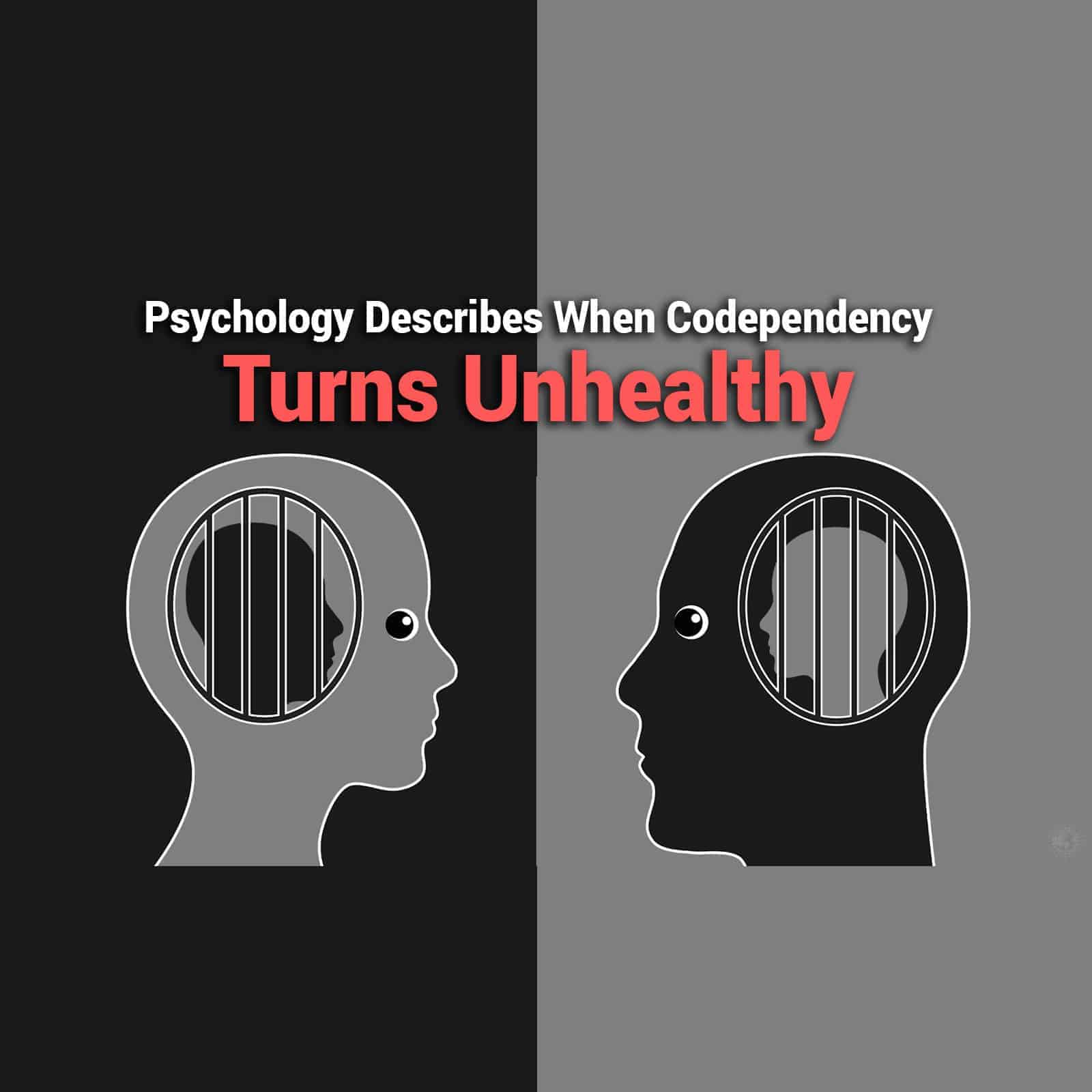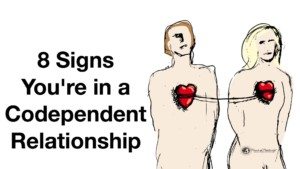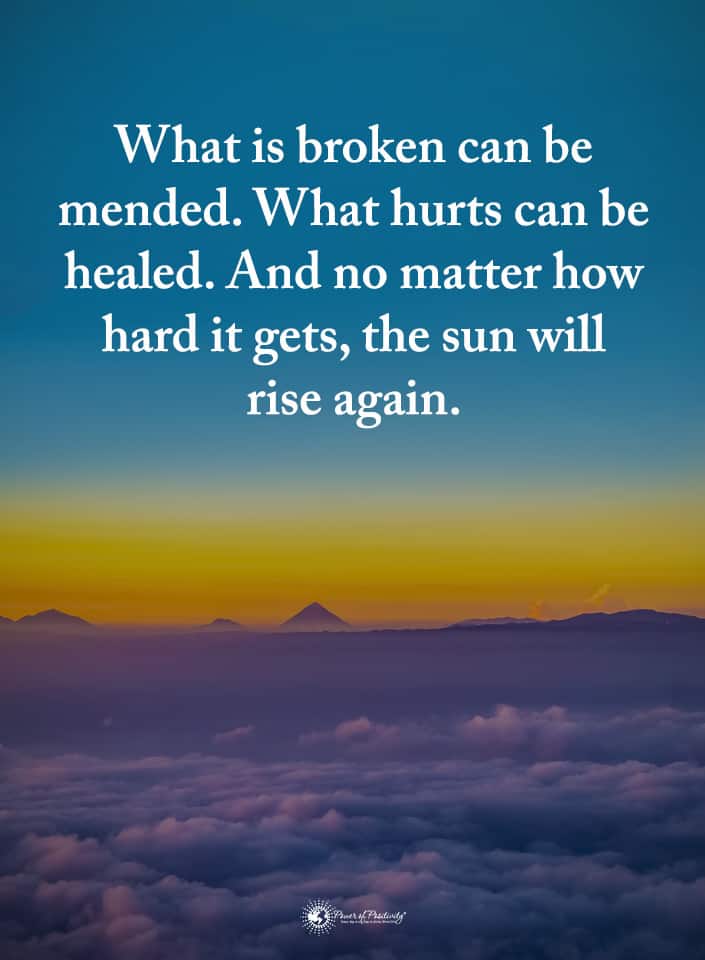If you’ve ever wondered why you keep getting yourself trapped in bad relationships and why they affect your mental and emotional well-being in such a negative way, there may be an underlying issue. Codependency is an issue that many people struggle with, and they don’t even realize it. When you’re codependent, you may think that you’re giving your all to a relationship in a healthy way. However, it’s a trademark sign of an unhealthy relationship.
There are a variety of different reasons as to why someone develops these types of behaviors in relationships. For some people, their childhood is the primary source of their relationship issues. Others may have learned these unhealthy behaviors from past relationships. If you hope to recover and start having healthy relationships with yourself and others, you first need to understand what codependency is.
What is Codependency?
When you’re codependent, you’re addicted to another person. No matter what the other person does, you’re always there for them, even when it comes to the sacrifice of your mental health. While parents may have these types of relationships with their children, codependency is far more common in romantic relationships. J Lampis describes this type of unhealthy relationship as “a specific relationship addiction characterized by preoccupation and extreme dependence—emotional, social, and sometimes physical—on another person.”
Addiction can easily be summarized as continuing a behavior despite adverse consequences. In relationships, this looks like continuing to behave in a way that’s making you or another person miserable. For many people, this comes in the form of enabling, but you can’t stop letting the other person because you’re so attached to them. Many codependents will continue fueling an addict’s addiction to fear that the addict will leave them if they don’t.
Many parents are codependents, and this can hurt the child’s ability to become self-sufficient. A parent’s inability to let their child become their person can gravely affect the child’s future. Moreso, this type of relationship can allow a child to ruin their life because the parent fears the child getting upset with them. Without the ability to let go or set healthy boundaries negatively impacts both the parent as well as the child.
Some of the common signs of a codependent relationship include:
- Valuing the approval of others more than you value yourself
- A lack of trust in yourself
- Poor self-esteem
- Intense, and sometimes irrational, fears of abandonment
- Difficulty identifying your feelings
- Experiencing an exaggerated sense of responsibility for the actions of other people
- Dependence on relationships that come at your own cost
How Does Codependency Develop?
In 2012, Theresa M. Knudson and Heather K. Terrell wrote a landmark paper titled “Codependency, Perceived Interparental Conflict, and Substance Abuse in the Family of Origin.” Through their research, they wanted to look at how a person’s upbringing affected them later in life. In the paper, they discuss how frequently one or both parents struggled with substance abuse, and this type of childhood may be the leading risk factor for creating codependents. Terrell and Knudson discovered that although substance abuse may play a significant role, the biggest contributor to people becoming codependents was the interparental conflicts.

Children with codependency
Although different studies explain various risk factors for codependency, the consensus is that most of these issues develop in childhood. When you have an unstable childhood or have to take on more responsibilities than a child should, you’re primed to create unhealthy relationships when you’re older. Many people believe that nature overpowers nurture, but more and more research is showing that how you were raised and what you experienced as a child has a significantly tremendous impact on who you become.
As a child, you may have to become a caretaker at a young age if your parents are unstable. This doesn’t have to mean that they’re an alcoholic or drug addict, but they could have struggled with an illness or were continually working. Picking up the responsibility of taking care of your siblings, cleaning the house, cooking, and taking on other duties can mold you into someone who takes care of others.
Taking up so many responsibilities can also turn you into a people pleaser. During your childhood, and even later in life, you can start to feel guilty if you think that you’re not taking care of everything. This is how you begin to develop the idea that you’re responsible for the actions of others and thinking you had some way of preventing adverse outcomes.
Children of substance abusers
For people who had parents that were alcoholics, addicts, or were verbally and emotionally abusive, this causes even more problems. You most likely felt that you were flawed, which created an intense need to feel loved. You may have also realized that even though people say they love you, they might hurt you. Furthermore, you never learn to set boundaries with other people.
While all of these may seem like they create a problematic childhood, all of these characteristics can turn into codependency later in life. You may not only have difficulty in romantic and personal relationships, but you might start to realize that this is affecting you at work too. Once you start recognizing these signs in your life, you can start working towards a solution. No matter how long you’ve struggled with these issues, there are many ways to recover.
How to Overcome Codependency
They say that addiction is continuing any action despite adverse consequences. Those with codependency issues continue to pursue unhealthy behaviors and relationships even though it’s making themselves or others miserable. Luckily, many people have overcome these unhealthy behaviors and have gone on to live incredible lives. Before you embark on your journey of recovery, know that it’s going to take time and patience.
Remember, these issues have been deeply ingrained in you since you were a child. As you start on the path towards recovery, you need to cut yourself some slack and realize that this will take practice. All of the strategies for overcoming codependency involve making difficult decisions that you’re not used to. Over time, these new behaviors become more comfortable as you continue to stay on the right track.
Peer support is a great way to begin healing, and there are some incredible groups out there that can help. If you start going to therapy, your therapist can most likely recommend various support groups where you’ll be around people who understand precisely what you’re going through. In the age of social media, there are plenty of support groups online as well.
Establishing boundaries is going to create a solid foundation for your recovery. Many people who struggle with codependency issues don’t even know where to begin when it comes to setting boundaries. When you have lived your entire life trying to appease and take care of others, it can be difficult even to imagine telling someone “no.”
Some ways to start establishing boundaries are to ask yourself these questions:
- Does this align with my wants and needs?
- Is this acceptable behavior from the other person?
- Am I faithful to my feelings?
- Is this crossing my limits?
- Am I making myself a priority?
Setting boundaries can be a struggle at first because there may be some trial and error. All relationships with significant others, friends, family members, and coworkers depend on cooperation and compromise. Sometimes healthy relationships mean doing things for others that we may not want to do at the time, but it’s unhealthy when it happens all of the time.
Final Thought: Learn to Love Yourself
The best thing you can do is begin to learn how to love yourself. Many of the issues that you’ve been dealing with are rooted in a lack of self-love and self-compassion. Like all of the other strategies, this can take some time as well, but you can start by realizing that you can’t save the world.
Sometimes, the greatest act of love you can show is letting a person figure things out on their own. They might fail, but that’s alright because they will develop resilience and be better the next time. Many times, a person needs to face the consequences to correct their behaviors.
It’s also okay to learn to live a life without being dependent on another person. The overwhelming need to be with someone else is often rooted in insecurities and fears. Remember, you don’t need validation from someone else to feel validated, and many people in your life love you even if you’re not in a relationship.
The road to recovery is a long one, but it is possible. Many people around the world are living proof that it’s possible to overcome their struggles and lead incredible lives. It all starts with recognizing the codependency problem and then actively participating in one’s recovery.


















